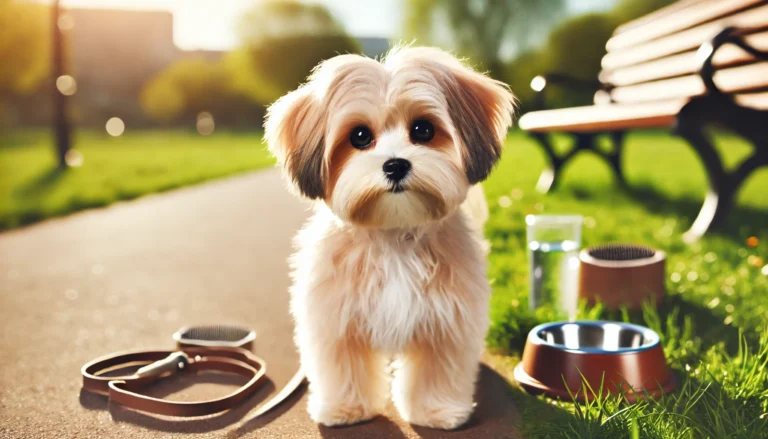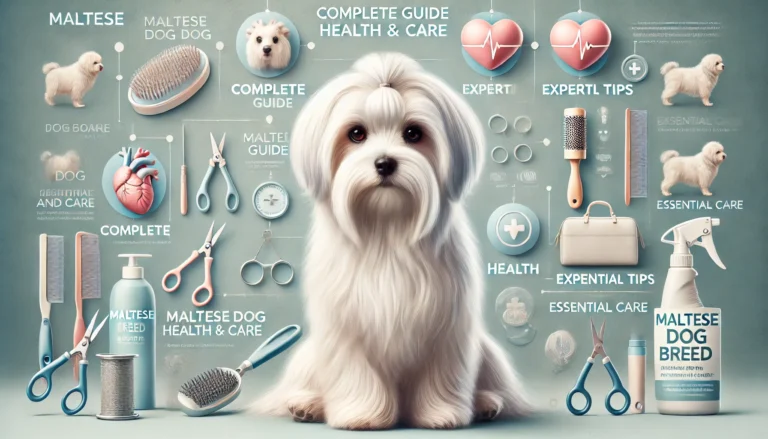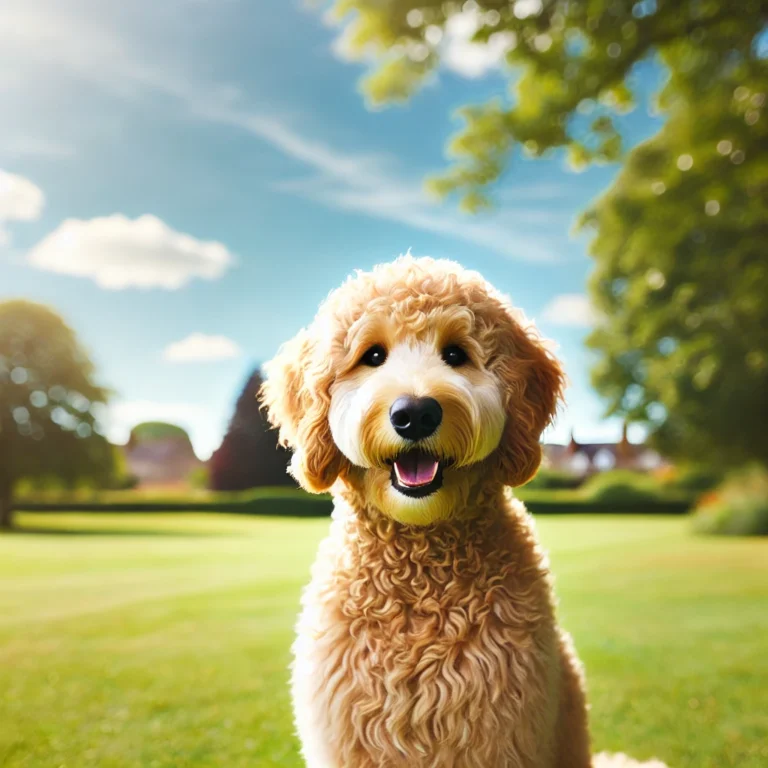Pomsky Dog Breed: Better Health and Care

The Pomsky, a delightful mix of a Pomeranian and a Siberian Husky, has captured the hearts of dog lovers around the world with its fluffy appearance, energetic personality, and friendly demeanor. This breed is known for its striking looks and lively spirit, but like all dogs, it comes with its own set of health considerations and care requirements. In this article, we’ll dive deep into the health and care needs of the Pomsky to help potential and current owners ensure their furry companions lead happy, healthy lives.
Understanding the Pomsky
Before we delve into health and care, let’s quickly cover what makes the Pomsky so special. This breed is relatively new, having gained popularity in the last decade. Pomskies are known for their wolf-like appearance, often sporting the Husky’s beautiful blue or multicolored eyes along with the Pomeranian’s fluffy coat. Their size can vary significantly, usually weighing between 20 and 30 pounds and standing 10 to 15 inches tall. This breed is playful, intelligent, and can be quite stubborn, making training a fun yet challenging experience.
Health Concerns
While Pomskies are generally healthy dogs, they can inherit health issues from both parent breeds. Being aware of these potential health concerns is crucial for every Pomsky owner. Here are some common health issues to watch out for:
1. Hip Dysplasia
Hip dysplasia is a genetic condition where the hip joint doesn’t fit into the hip socket properly. This can lead to arthritis and pain as the dog ages. Regular vet check-ups and maintaining a healthy weight through diet and exercise can help mitigate this risk.
2. Eye Problems
Pomskies can be prone to various eye conditions, including cataracts and progressive retinal atrophy (PRA). These conditions can lead to vision loss if not detected early. Regular veterinary eye exams are essential to catch these issues in their early stages.
3. Allergies
Like many dog breeds, Pomskies can suffer from allergies, which may manifest as skin irritations or gastrointestinal issues. Identifying and avoiding allergens, along with potential veterinary care, is necessary to keep your dog comfortable.
4. Dental Issues
Pomskies, especially those leaning more towards the Pomeranian side, can be prone to dental problems. Regular dental care, including brushing their teeth and providing dental chews, can help prevent plaque build-up and gum disease.
5. Obesity
Due to their playful nature, Pomskies need regular exercise to stay healthy. Overfeeding and lack of activity can lead to obesity, which in turn can cause other health issues, such as diabetes and heart problems.

Regular Veterinary Care for Your Pomsky
Regular check-ups with a veterinarian are crucial for maintaining your Pomsky‘s health. Annual wellness exams can help catch any potential issues early on. During these visits, your vet will likely perform vaccinations, dental checks, and blood tests to assess overall health. Don’t forget to keep an eye on their weight and ask your vet for advice on diet and exercise tailored to your dog’s specific needs.
Nutrition and Diet for Pomskies
A balanced diet plays a key role in your Pomsky’s health. Given their energetic nature, they require high-quality dog food that meets their nutritional needs. Here are some dietary considerations:
1. High-Quality Dog Food
Opt for dog food that lists meat as the first ingredient and is free from fillers like corn and soy. Look for foods rich in protein and healthy fats to support their energy levels.
2. Portion Control
Portion control is essential to prevent obesity. Follow the feeding guidelines on the dog food package, but remember that these are just starting points. Adjust portions based on your Pomsky‘s activity level, age, and weight.
3. Supplements
Consult your vet about the need for any supplements. Omega fatty acids, for instance, can promote a healthy coat and skin. Some owners might consider joint supplements, especially for older dogs.
Grooming Your Pomsky
The Pomsky‘s beautiful coat requires regular grooming to keep it healthy and looking its best. Here are some grooming tips:
1. Brushing
Brush your Pomsky‘s coat at least once a week to prevent matting and reduce shedding. During shedding season (usually spring and fall), you may need to increase brushing to several times a week.
2. Bathing
Bathe your Pomsky every few months or as needed. Use a gentle dog shampoo to avoid irritating their skin. Be sure to rinse thoroughly to remove all soap residues.
3. Nail Clipping
Regular nail trimming is essential to prevent overgrowth and painful splitting. Aim to trim your Pomsky’s nails every few weeks or as needed.
4. Ear Care
Check your Pomsky‘s ears regularly for dirt or wax build-up. Clean them gently with a vet-recommended ear cleaner to prevent infections.

Exercise Needs for Your Pomsky
Pomskies are energetic dogs that need plenty of exercise to stay healthy and happy. Here are some ways to meet their exercise needs:
1. Daily Walks
Aim for at least one to two walks per day, each lasting around 30 minutes. Vary your routes to keep things interesting and provide mental stimulation.
2. Playtime
Engage your Pomsky in playtime activities, such as fetch, tug-of-war, or agility training. These activities not only provide physical exercise but also mental stimulation, which is essential for this intelligent breed.
3. Socialization
Pomskies thrive on social interaction. Regular playdates with other dogs or trips to the dog park can help them develop good social skills and burn off energy.
Training and Socialization for Pomskies
Training a Pomsky can be both a rewarding and challenging experience. Given their intelligence and independence, early socialization and obedience training are crucial. Here are some tips to consider:
1. Start Early
Begin training and socialization as early as possible. Expose your Pomsky to different environments, people, and other animals to help them become well-rounded adults.
2. Positive Reinforcement
Use positive reinforcement techniques, such as treats and praise, to encourage good behavior. Avoid harsh corrections, as these can lead to fear or aggression.
3. Consistency is Key
Be consistent with commands and rules. This helps your Pomsky understand what is expected of them and reduces confusion.
4. Professional Training
Consider enrolling your Pomsky in a training class. Professional trainers can provide valuable guidance and socialization opportunities in a controlled environment.
Mental Stimulation for Your Pomsky
In addition to physical exercise, Pomskies require mental stimulation to prevent boredom, which can lead to destructive behaviors. Here are some ideas to keep their minds engaged:
1. Puzzle Toys
Invest in interactive puzzle toys that challenge your Pomsky to think. These toys can keep them entertained and mentally stimulated for hours.
2. Training Sessions
Incorporate short training sessions into your daily routine. Teaching new tricks or commands can be a fun way to engage your dog’s mind.
3. Hide and Seek
Play hide and seek with your Pomsky. Hide treats or toys around the house and encourage them to find them. This taps into their natural hunting instincts and provides a great mental workout.
Seasonal Care for Pomskies
Pomskies, with their thick double coat, can handle cold weather well, but they need some extra care during extreme temperatures. Here are a few tips for seasonal care:
1. Winter Care
In winter, your Pomsky may enjoy playing in the snow, but keep an eye on their paws for ice and salt irritation. Consider dog booties for protection in harsh conditions. Also, watch for signs of hypothermia, such as shivering or reluctance to go outside.
2. Summer Care
During hot summer months, ensure your Pomsky has plenty of water and shade. Avoid exercising during the hottest parts of the day to prevent overheating. Watch for signs of heatstroke, including excessive panting and lethargy.
Do You Know
The Saint Bernard, a gentle giant known for its friendly demeanor and impressive size, is one of the most beloved dog breeds around the world. This breed not only captures hearts with its striking appearance but also has a rich history as a rescue dog in the Swiss Alps.
Conclusion
The Pomsky is a unique and charming breed that brings joy and companionship to many families. However, owning a Pomsky comes with responsibilities, especially regarding their health and care. By understanding their potential health issues, providing regular veterinary care, maintaining a balanced diet, and ensuring adequate exercise and mental stimulation, you can help your Pomsky thrive.
Is a Pomsky a good pet?
Yes, Pomskies are good pets for those who can handle their energy and playful nature. They’re affectionate, intelligent, and good with families but require consistent training.
How big is a full-grown Pomsky?
A full-grown Pomsky typically weighs between 9-15 kg (20-30 pounds) and stands around 25-38 cm (10-15 inches) tall, though their size can vary based on their parent breeds.
Do Pomsky dogs bark a lot?
Pomskies can be vocal and may bark frequently, especially if they’re bored or lack exercise. Training and mental stimulation help reduce excessive barking.
Are Pomskies difficult dogs?
Pomskies are intelligent but can be stubborn, requiring patient and consistent training. With proper care, they are manageable, though they may challenge new dog owners.
How expensive are Pomskies?
Pomskies are relatively expensive, with prices typically ranging from $1,000 to $5,000 depending on the breeder, lineage, and location.
How rare is a Pomsky?
Pomskies are not extremely rare but can be harder to find due to their specialized breeding and popularity as a designer breed.
Are Pomskies safe?
Yes, Pomskies are generally safe, friendly, and good with families, though socialization is essential to ensure they’re comfortable with children and other pets.
How smart is a Pomsky?
Pomskies are very intelligent and learn commands quickly, though they may be a bit stubborn. They excel in training that uses positive reinforcement.
How long is a Pomsky lifespan?
Pomskies have an average lifespan of 12-15 years with proper care, diet, and regular veterinary check-ups.
How many kg is a Pomsky?
Most Pomskies weigh between 9-15 kg (20-30 pounds) when fully grown, though some may be slightly smaller or larger.
Do Pomskies smell?
Pomskies do not have a strong odor if groomed regularly, but occasional baths and brushing help keep them smelling fresh.
Can Pomskies be aggressive?
Pomskies are generally not aggressive, though inadequate training or poor socialization may lead to anxiety or protective behaviors. Early socialization is key.
Are Pomskies noisy?
Pomskies can be noisy, often barking and howling due to their Husky lineage. Consistent training can help manage their vocal tendencies.






